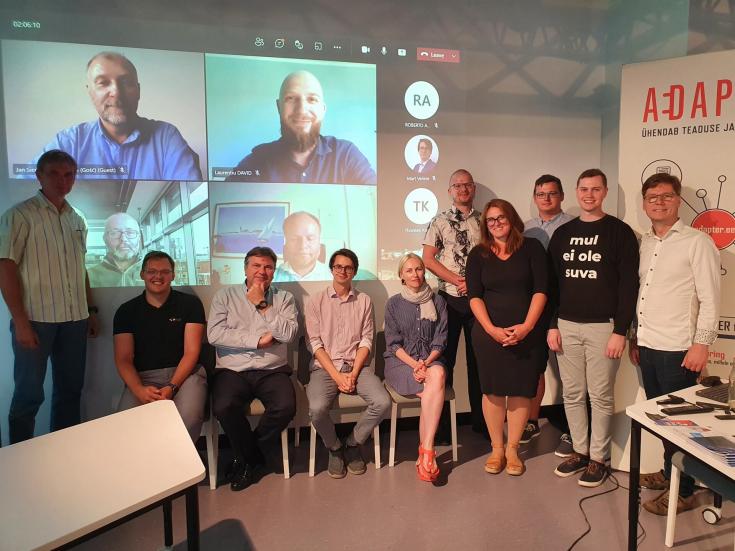The Platform helps Tartu set up a Green Deal accelerator

On 29 and 30 June 2021, the Policy Learning Platform organised a hybrid-format peer review in Tartu (Estonia). The aim was to advise local stakeholders in setting up their Green Deal accelerator and related impact investment fund. The peer review was hosted by the Tartu City Government Business Development Department.
The host’s main policy challenges and peers’ suggestions can be found in the peer review in the follow-up report.
Peers from across Europe
Alongside Mart Veliste and Rene Tonnisson, our Thematic Experts for SMEs competitiveness; Thorsten Kohlisch, Policy Learning Platform manager; and Laurentiu David, Policy Officer, European peers gathered (some physically, some virtually) to exchange their relevant experience on the topic:
- Andreas Jonas, Director of the Economic Development Agency for Maerkisch-Oderland, Strausberg (Germany)
- Jan Sienkiewicz, Regional Development Agency in Bielsko-Biala, Upper Silesia, Director of International Relations and Projects, Bielsko Biala (Poland)
- Roberto Algarra Alberto, Valencian Institute of Business Competitiveness, IVACE, Unit Manager of financial advisory and European Projects, Valencia (Spain)
- Matiss Neimaniss, Fund manager at Buildit Latvia Accelerator and Pre-Seed and Seed Investment, Riga (Latvia)
- Andrew Dickson, Zero Waste Scotland, Circular Economy Investment Fund Programme Manager, Stirling, Scotland (UK)
The main related challenges addressed by the peer review concerned ensuring effective set-up and sustainable development of the accelerator and related impact investment fund.
Recommendations and conclusions
Based on earlier smart city initiatives and the existing regional startup ecosystem in Tartu, it has become evident that a new acceleration programme and impact investment fund focused on Green Tech would be needed to further strengthen ongoing smart city and startup ecosystem developments in Tartu.
The rationale of idea, currently bearing a working title Green Deal Accelerator, is related to the growing importance of the Green Deal topics in the context of Tartu (as well as nationally and internationally), and the need to fill in the current gap in the regional ecosystem.
One of the main conclusions of the peer review was that the first step of setting up a Green Deal accelerator needs to be defining the objectives of the accelerator as well as the focus (branches, target groups, milestones) to ensure that all stakeholders are on the same page and that the end goals are clear as there are various ways of setting up such an accelerator (e.g. results-orientated or process orientated, business-driven or educational, open to all ideas or challenge-based, focused or more general programmes).
Another important consideration was maintaining the accelerator – a way needs to be found where everybody would be happy to pay for it long run. It is important to determine a strong risk matrix and financing package that attracts investors and SMEs to cohabit.
The importance of group mentoring and peer learning was also emphasized for running a successful accelerator so that both the mentors and companies would enjoy the process and build stronger interpersonal relations.
All the recommendations can be found in the follow-up report.
Next steps
“The exchanges gave us good reflections on our ideas and brought us new views on our ambition to launch an innovative GreenTech accelerator in Tartu. After these two days I feel much more confident that we are heading in the right direction.” - Raimond Tamm, Deputy Major, City of Tartu
The host organisation found the peer review very useful to give reflections and validating the preliminary approach on the Tartu Green Deal Accelerator programme and receiving advice regarding setting up an impact investment fund. The ideas presented by the experts participating in the peer review will be discussed further with other stakeholders and implemented in the creation in the programme and fund, when found applicable.
According to the host, most of the recommendations will likely be implemented in the next 6 months.